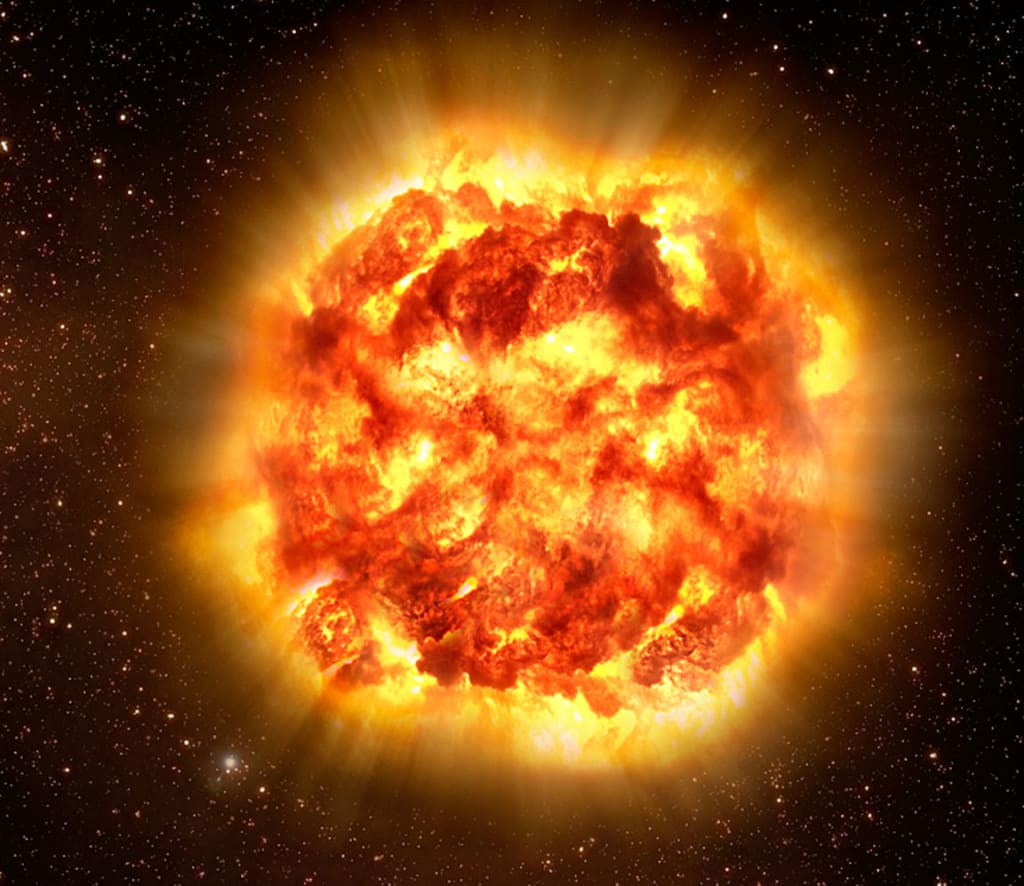
In the vast expanse of the cosmos, the sun stands as a celestial behemoth, orchestrating the delicate dance of our solar system. But what if this cosmic giant were to undergo a sudden and spectacular boom? The implications would be catastrophic for Earth and the entire solar system, yet the underlying processes leading to such an event are fascinating to explore. Join us on an extended journey into the heart of the sun, as we unravel the intricate dynamics that govern its existence and delve into the hypothetical aftermath of a celestial explosion.
At the sun's core, a mesmerizing dance unfolds among hydrogen atoms. These atoms, brimming with excitement, collide with each other, triggering a phenomenon known as nuclear fusion. In this Fusion Fiesta, hydrogen atoms combine to form helium atoms, a grand-scale chemistry experiment. What makes this dance truly remarkable is the conversion of a tiny bit of mass from hydrogen atoms into an immense amount of energy, a concept immortalized by Einstein's famous equation, E=mc^2. The resulting energy manifests as light and heat, radiating outward to illuminate the entire solar system.
The sun's core, under tremendous pressure from the outer layers, maintains equilibrium to prevent chaos. This pressure, stemming from the immense weight of the sun's outer layers, ensures that the energy created from fusion doesn't escape, resulting in a dazzling Photon party that eventually reaches the sun's surface. From there, it races through space, reaching Earth as sunlight, playing a crucial role in sustaining life and warming our planet.
As we bask in the sun's cosmic dance, a critical question arises: What happens when the sun reaches the end of its life? Approximately 5 billion years from now, the sun's hydrogen fuel will be depleted, initiating transformative phases. The sun will first puff up into a red giant, swallowing inner planets, including Earth, in a cosmic embrace. This red giant phase will be followed by a contraction, leaving behind a planetary nebula as outer layers fade into space. The sun's core, now filled with helium, will undergo further transformations, fusing heavier elements like oxygen and carbon. Ultimately, the sun will retire into a compact white dwarf, its radiant glow a testament to a stellar journey that spanned billions of years.
But what if this grand cosmic narrative took an unexpected turn, and the sun were to go out with a sudden, explosive bang? Envision the sun exploding, unleashing an unprecedented amount of energy that sends shockwaves racing through space. Earth, along with the entire solar system, faces instant vaporization. A torrent of supercharged particles, including X-rays and gamma rays, would wreak havoc on the atmosphere, causing ionization and a colossal electromagnetic pulse that fries electronic devices.
The sun's grand finale wouldn't spare any celestial bodies. Planets, asteroids, and other objects in its path would be knocked off their cozy orbits, resulting in chaos and unpredictability. Even surviving planets, like Jupiter and Saturn, would lose their internal heat, transforming into incredibly cold realms. The asteroid belt between Mars and Jupiter would be obliterated or scattered to the cosmic winds.
Amid this cosmic turmoil, could humanity endure such a cataclysmic event? The short answer is a resounding no. The sun's explosive tantrum would wipe out everything, leaving only the possibility of resilient bacteria lurking in the shadows. However, in a speculative scenario where the sun provides advance notice of its impending boom, could humanity formulate a survival plan?
Moving to another solar system with an Earth-like planet emerges as the most logical option, considering the disappearance of Mercury, Venus, and Earth in the current system. Yet, even if Earth were to miraculously survive the initial explosion, the consequences would be dire. The immediate aftermath would witness a climate gone awry, with extreme temperature fluctuations resembling a never-ending heatwave.
The absence of the sun's warmth would trigger the evaporation of oceans, creating thick, heat-trapping clouds. Without the sun's rays, Earth would quickly transform into an icy freezer. In such a scenario, unconventional survival strategies become imperative. Deep underground shelters could offer temporary refuge from radiation and sudden temperature changes, allowing humanity to endure for a few years.
But the cosmic drama doesn't end there. Earth, severed from the sun's gravity, would drift aimlessly in search of a new center of gravity. Our planet, along with its trusty satellite, the moon, and other celestial companions, would embark on a journey into the cosmic unknown. Fortunately, our sun is expected to shine for billions of years, ensuring a stable center for our cosmic home.
While these scenarios may seem far-fetched, contemplating such hypothetical events allows us to appreciate the delicate balance that sustains life on Earth. Our sun, a gravitational anchor for our solar system, plays a crucial role in nurturing life. As we ponder these cosmic what-ifs, we gain a deeper understanding of the wonders of the universe. Stay tuned for more explorations into the realms of the unimaginable and the awe-inspiring. If this cosmic journey has piqued your curiosity, don't forget to like, share, and subscribe for more enlightening content on the cosmic wonders that surround us.





Comments
There are no comments for this story
Be the first to respond and start the conversation.